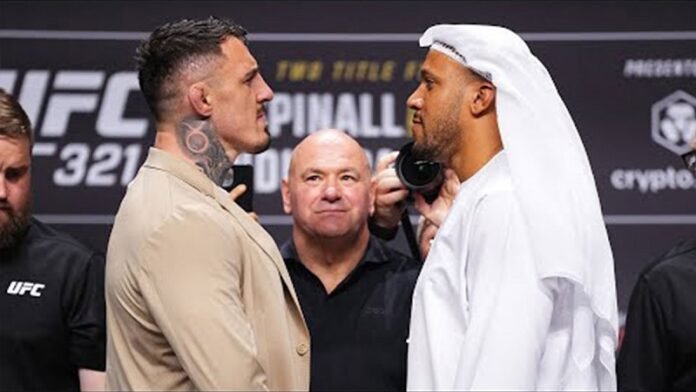On the eve of what was expected to be one of the year’s biggest fight nights, UFC 321 — headlined by Tom Aspinall vs Ciryl Gane — faced a twist that reminds us the fight game remains at the mercy of the unpredictable. A sudden cancellation, just hours before the event, laid bare the hidden cracks in a system celebrated for its professionalism.
Beyond the headline: a fight canceled at the eleventh hour
Less than forty-eight hours before the event kicked off in Abu Dhabi, Abdul-Kareem Al-Selwady’s bout against Matheus Camilo was removed from the preliminary card. No reported injury, no weight issue, just a quiet decision that left fans and fighters alike in disbelief. For Al-Selwady, who had endured weeks of camp and preparation, it was the cruelest kind of defeat — one that comes before the opening bell.
On Instagram, the Jordanian confirmed the news in a short yet telling message:
“Everything was perfect — the camp, the weight, my readiness — but God decided otherwise.”
Behind these words lies the heartbreak of an athlete who was ready to fight for his breakthrough, only for fate to intervene at the final moment.
The hidden fragility of a seemingly flawless organization
The UFC prides itself on being the gold standard of combat sports, yet this incident underscores an uncomfortable truth — that even the most structured organizations remain vulnerable to disruption. A last-minute withdrawal shakes not only fighter preparation but also the media and business ecosystem surrounding such a global event.
The organization’s silence on the exact cause fueled speculation. Was it a medical issue, a regulatory setback, or internal logistics? In that silence, the drama of mixed martial arts finds its continuity — the tension between control and chaos.
The main event goes on, but the shadow remains
Despite the cancellation, attention remains fixed on the heavyweight clash between Tom Aspinall and Ciryl Gane — a duel of technique and temperament. Aspinall represents calm precision and explosive timing, while Gane embodies fluid movement and strategic intelligence.
Yet beneath this spectacle, one question lingers: how can such a lapse occur in a system built on discipline and control?
In conclusion
This last-minute withdrawal is more than a logistical mishap — it’s a reminder that behind the glamour and the lights, the UFC remains a deeply human enterprise. It exposes the fragile balance between order and unpredictability, between professionalism and fate, between the fight we see — and the one that never happens.



